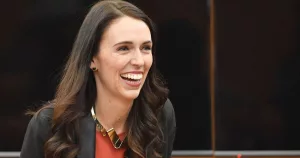As always at this time of year, news headlines are full of slogans about the “winter crisis”” in the NHS. In the United Kingdom, the healthcare system is suffering a particular crisis. Citizens are blaming the state, the health care system, and medical professionals for not receiving service in a timely manner.
By the first week of January, the crisis reached a critical point. One in eight patients has experienced a long wait for medical care. The Independent reported that “the number of deaths related to long delays in emergency care rose to 500 a week by the end of December when more than 30,000 patients a week waited 12 hours or more.” What happens now that the number of patients who have to wait 12 hours or more has increased by 20,000 is unknown. As a result of these issues, healthcare workers are going on strike.
On Wednesday, January 11, 25,000 ambulance workers, including 999 call operators, decided to go on strike. A nurse strike is planned for January 18 and 19. All of these events are further damaging the medical industry. The Independent claims that there is a lack of direct lines of oxygen in the hospital’s rooms. Regular wards or A&E are full of patients, as there is not enough space for everyone. Apart from that, people have to wait for hours before they can be assisted in the emergency room.
The British government has been highly criticized for “remaining silent to the NHS crisis” and not doing anything to stop it. On January 8, the country’s main opposition leader, Keir Starmer, said that the NHS is in its “worst crisis ever” and ‘it is not just on its knees, it’s on its face,” as there are around 7.2 million people on the waiting list in the country.
But what is Prime Minister Rishi Sunak doing to respond to the ongoing crisis in the health sector?
On January 5, Sunak’s spokesperson claimed “we are confident we are providing the NHS with the funding it needs, as we did throughout the pandemic, to deal with these issues.” He insisted that earlier in September, the government recognized the challenges this winter would bring for the medical sector and sought measures to prevent it from happening. Such delusional statements led doctors to accuse Sunak of misinformation.
This was not the only occasion during which the British government’s statements provoked such a reaction. A few days later, in his speech, Sunak claimed that hospitals around the country received £500m in emergency funding to free up NHS beds as was first promised four months ago. Despite the promises, only £200m has been given to NHS and local authorities. The remaining £300m has not materialized and will not be disbursed until January 23. Professor Philip Banfield, the chair of the British Medical Association, stated: “hospitals across the country are being told there is more money to help free up beds. So why are we still forced to put patients on trolleys in corridors? The very least we should be able to expect from the government is to be honest with doctors and with the public, and worryingly we are seeing very little even of that.”
As the NHS crisis continues to evolve, no clear solution has been found to stop it. Last week, Sunak hosted a recovery meeting with health professionals and officials where he claimed that a “bold and radical” approach is needed to end the crisis. Eventually, the government stated that it would publish plans to improve ambulance and A&E waiting times in the coming weeks.
Featured image by: James Veysey/Shutterstock







